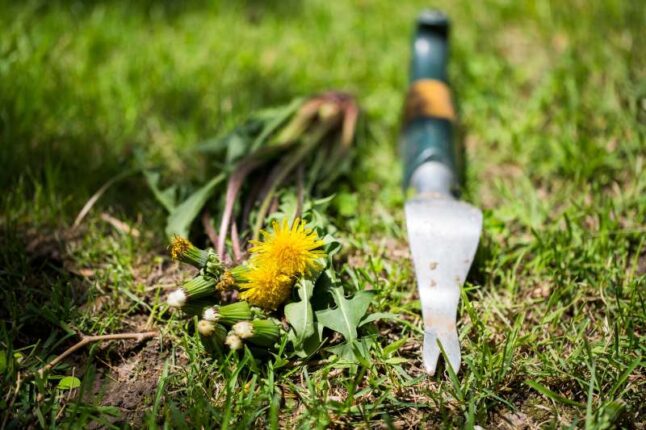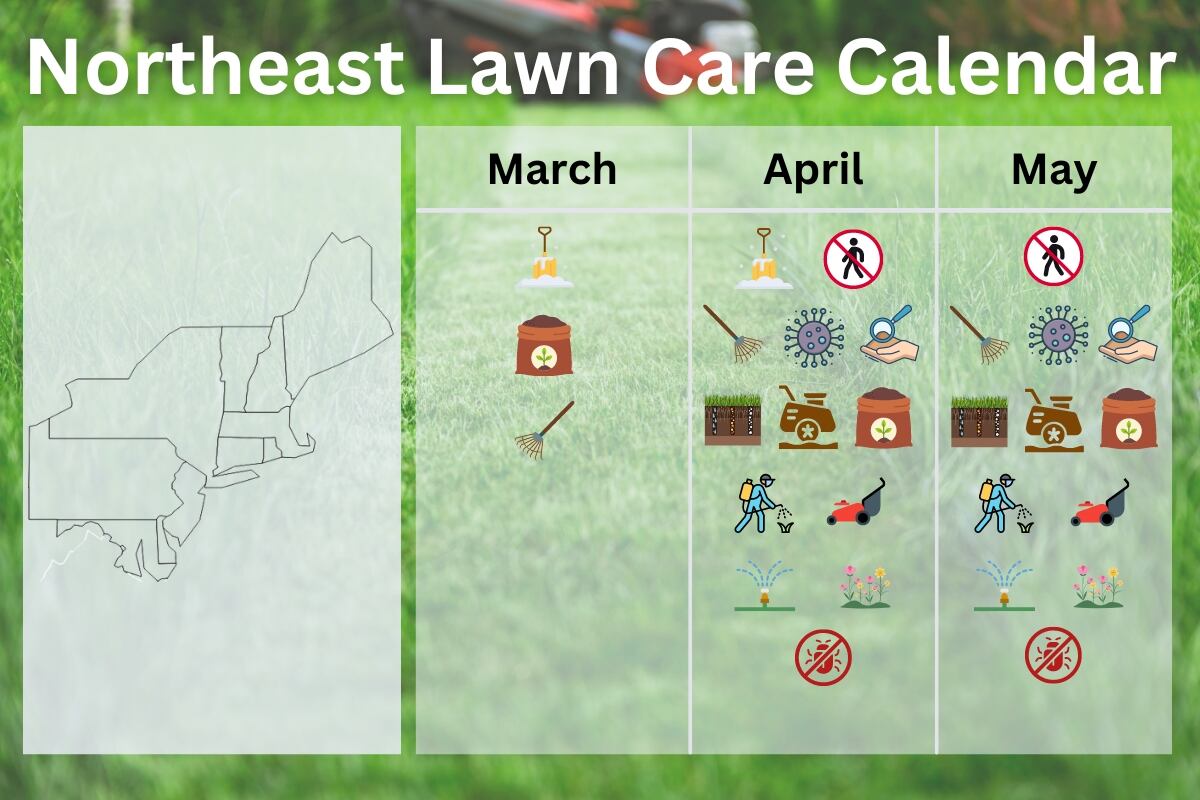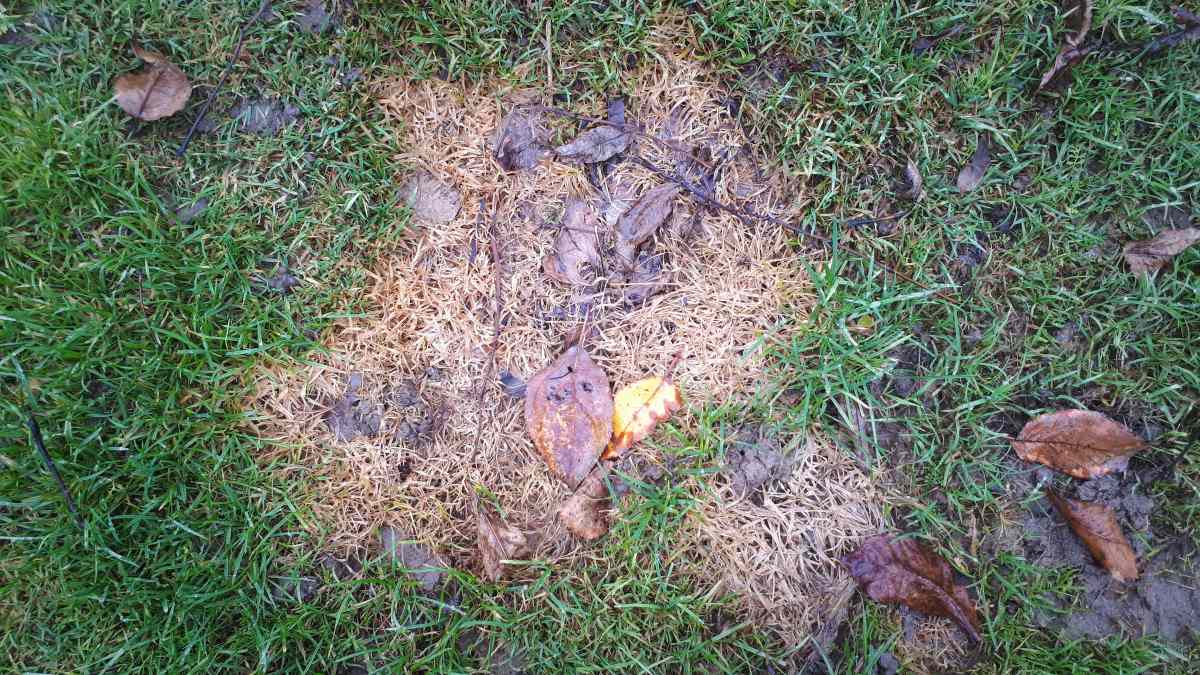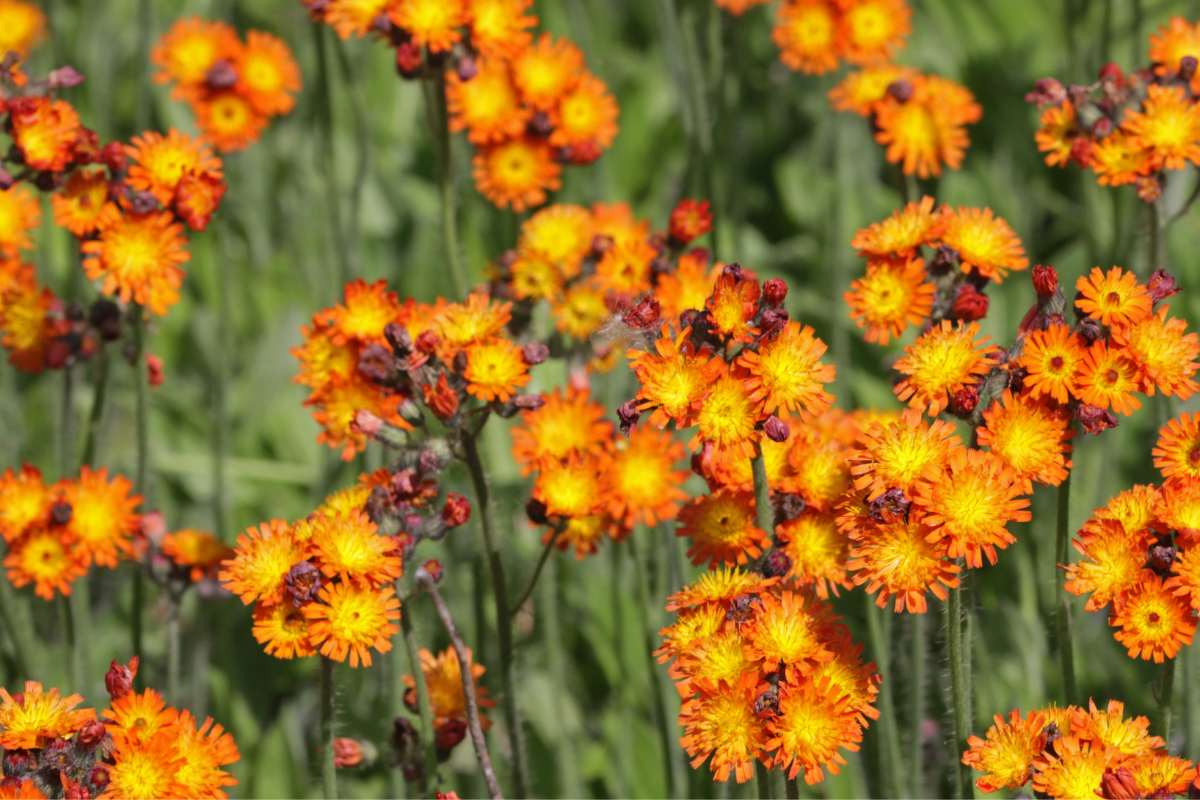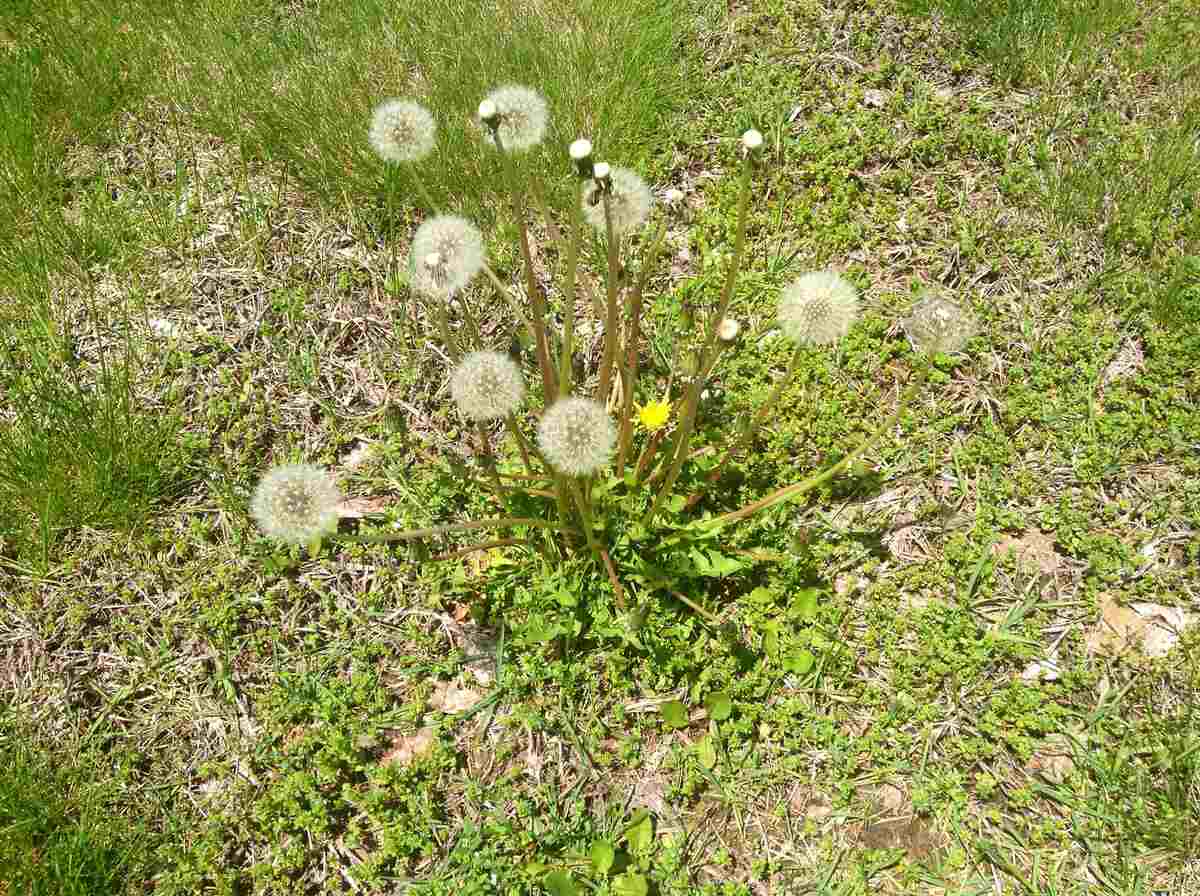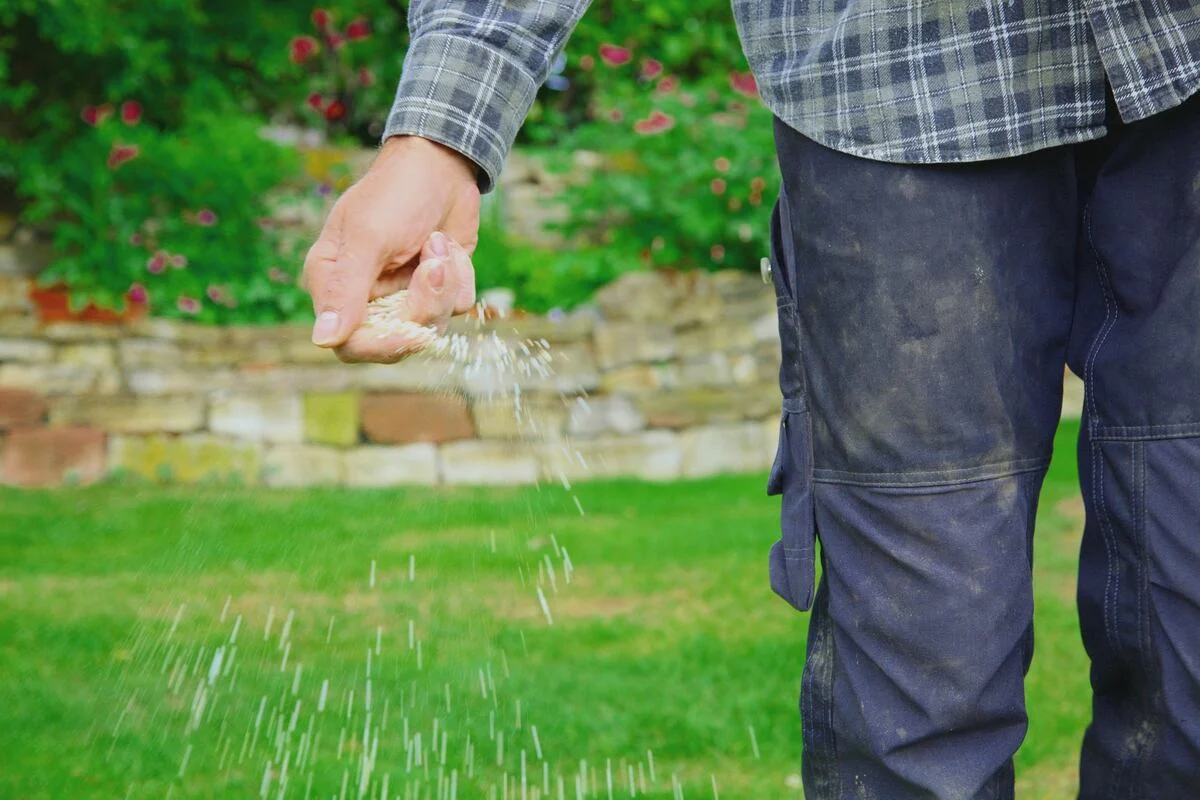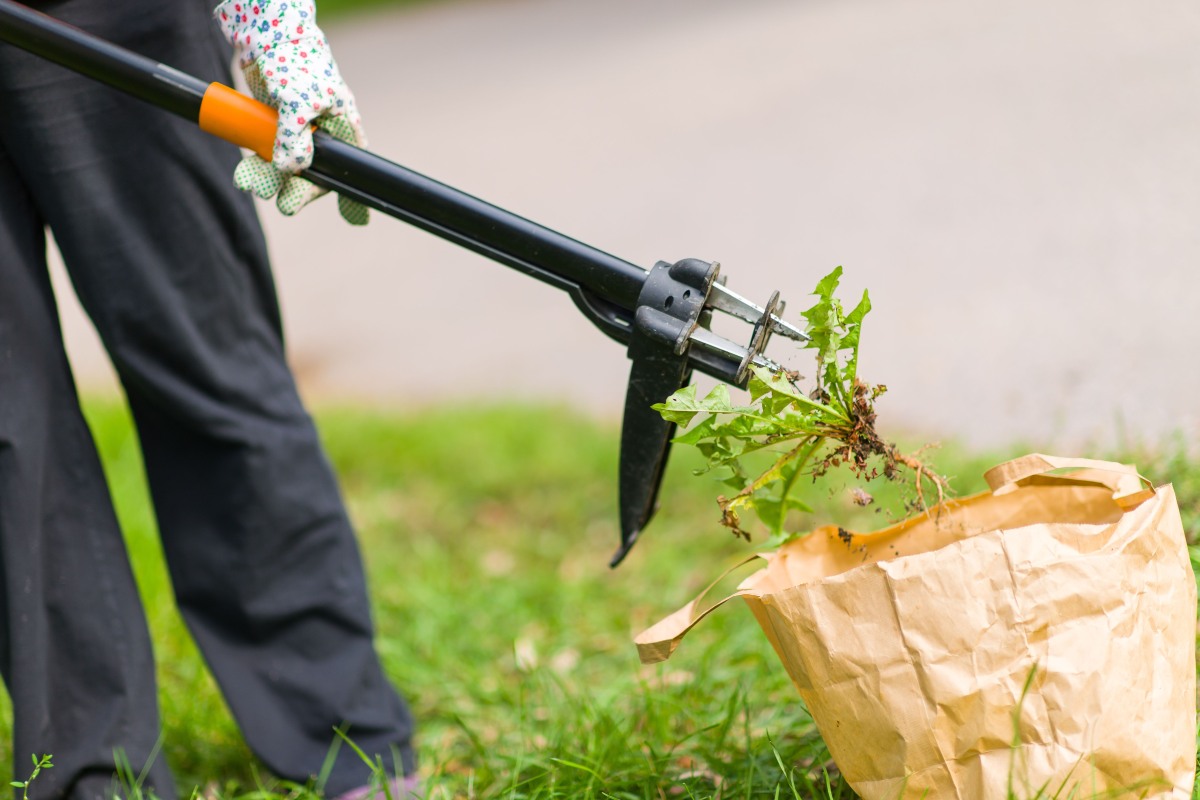
Let’s talk about those irritating invaders who love sneaking onto Kentucky lawns! We have plenty of lawn weeds in Kentucky that can ruin our exquisite turf, including our signature Kentucky bluegrass. But don’t worry; LawnStarter is here to assist you in identifying and comprehending these foes. Our guide to weed control in Kentucky will help you get rid of those pesky weeds – whether you want to do it yourself or hire a local lawn care pro.
Whether you have a cool-season or warm-season lawn in Kentucky, identifying weeds is the first step toward eliminating them from your lawn. Knowing your enemy lets you choose the right approach to get rid of it. So, let’s get started and design your perfect weed control program.
Common Kentucky Weeds
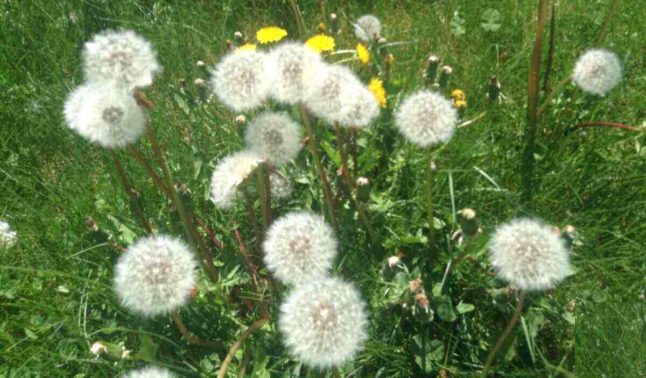
Examine the weeds invading your lawn. Are they grassy or broadleaf weeds? Do they have creeping stems or deep taproots? Examining their looks, development habits, and reproductive traits will help you decide what preventive measures to take.
Once you’ve identified the type of weeds growing in your lawn, you’ll be better prepared to confront them and show them who’s boss. Here are a few common weeds in Kentucky that you should look out for:
- Crabgrass: This annual grassy weed spreads swiftly and competes with the grass in your lawn. It thrives in hot, dry weather; thus, it’s widespread during Kentucky summers.
- Dandelions: These are the bane of many lawn enthusiasts, with their extensive taproots that make them resistant to eradication. Identify them by their yellow flowers and fluffy white seedheads.
- Clover: Clover can infiltrate lawns and give them a speckled appearance with its three-leafed clusters. It is a nitrogen-fixing plant, which means it competes with grass for nutrients. Instead of battling with clover, some homeowners choose to let it proliferate as an eco-friendly alternative clover lawn.
- Chickweed: This is a low-growing winter annual with little white blooms that grow in dense mats. It can swiftly take over bare or thin areas of the lawn.
- Broadleaf Plantain: This perennial weed is known for its large leaves and pronounced parallel veins, and it is commonly found in compacted soil. It can withstand intense foot traffic and is difficult to eradicate.
- Creeping Charlie (Ground Ivy): This aggressive, low-growing perennial weed spreads via creeping stems and has the potential to choke out grass. It features small, spherical leaves and purple flower clusters.
You can get help recognizing specific weeds in your lawn by consulting your county’s UKY agricultural extension office.
Best Weed Control Methods for Kentucky Lawns
There are two ways to control lawn weeds: mechanical control, which means removing the weeds manually, and chemical control, which means applying herbicides. Mechanical control is usually the most eco-friendly option and is better for your lawn’s health, but it is also more time-consuming and labor-intensive.
Learn about the best mechanical and chemical weed control methods for Kentucky below.
Mechanical Weed Control
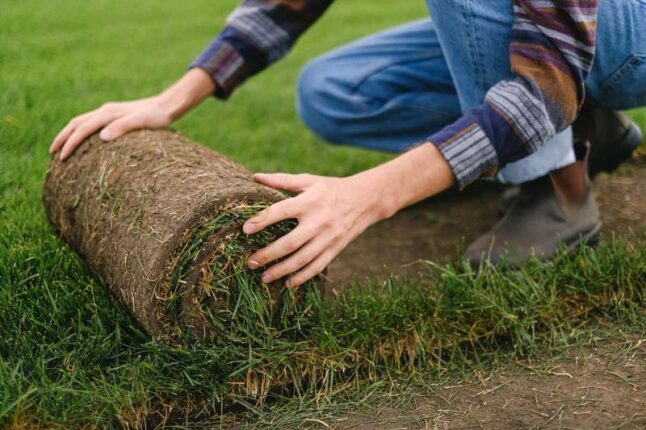
Mechanical approaches to weed control work well for small numbers of weeds or small areas. They include:
- Hand pulling: Remove weeds and their roots from the grass by hand. Pull up the entire root system to prevent regrowth.
- Digging or Tilling: Use a hand tool or trowel to remove deep-rooted weeds like dandelions or thistles. Get as much of the root as possible.
- Weed Trimming: Use a string trimmer or weed eater to clip weeds along fences, grass edges, and other hard-to-mow areas. This is a temporary solution, as the plants will grow back if you don’t remove the roots.
- Sod Replacement: If weeds have completely taken over a large area of the lawn, consider quashing them by planting new sod. This is an extreme and rather expensive solution, so it’s only necessary for severe and irreparable weed problems.
Chemical Weed Control
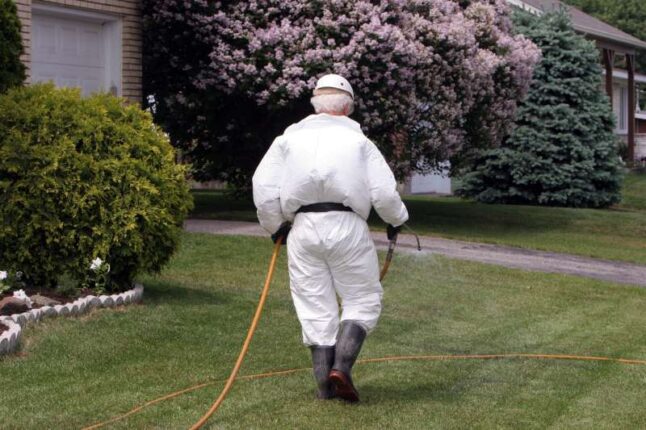
If there are too many weeds in your lawn to remove by hand, or if you’ve tried mechanical control methods and they aren’t working, chemical weed control with herbicides is the next step. Herbicides are chemical weed killers, and they’re readily available at your local garden store.
Different types of herbicides include:
- Liquid herbicides are usually mixed with water and sprayed from a handheld weed sprayer. Spray the herbicide evenly and systematically, row by row, to cover the whole area of your lawn where weeds are present.
- Granular herbicides come in solid granules, kind of like little grains of sand. They’re mixed with an inert carrier like clay, lime, or a fertilized carrier. You spread them with a fertilizer spreader all over the area to kill weeds. Granular herbicides are commonly used for larger lawns.
- Selective herbicides are designed to target specific weed types while causing the least amount of harm to your lawn and other desirable plants.
- Nonselective herbicides kill all the plants they touch and are not specified for any weed type. While this means they can kill any weed, it also means they will kill your lawn, so apply this type of herbicide carefully.
The most important thing to know about weed killers is whether they are pre-emergent or post-emergent. This distinction will determine when and how you should apply the herbicide. Applying it at the wrong time could render the herbicide entirely ineffective.
Pre-Emergent Herbicides
Pre-emergent herbicides are formulated to prevent the next season’s weeds from sprouting. Use pre-emergent herbicides to create a barrier that prevents weed growth before weed seeds germinate. This method is highly effective for controlling annual weeds. Choose the best pre-emergent herbicide based on your weed type and local climate.
Have a look at our guide, Using Pre-Emergent Herbicides the Right Way to Kill Your Lawn’s Weeds, to learn about the usage of pre-emergent herbicides in detail.
When to Apply Pre-emergent Herbicides:
The best time for pre-emergent herbicide application for annual summer weeds like crabgrass is in spring when the soil temperature is between 50-55℉.
However, for annual winter weeds, apply pre-emergent herbicide in fall when the soil’s temperature drops to 70℉.
Note: You can check local soil temperature readings online or consult your county’s UKY cooperative extension office.
Post-Emergent Herbicides
If the weeds in your lawn have already sprouted, you’ll want post-emergent herbicides. Post-emergent herbicides are used to combat weeds that have emerged out of the soil and are actively growing. You can select the suitable post-emergent herbicide for the type of common Kentucky weed growing in your lawn by reviewing our Best Post-Emergent Herbicides.
For a detailed view of when and how to use these herbicides, see our guide Applying Post-Emergent Herbicides to Your Lawn.
When to Apply Post-Emergent Herbicides
The best time to apply post-emergent herbicide to your lawn is when the weed has popped out of the soil surface to invade your turfgrass.
- In Spring: Many common broadleaf weeds in Kentucky, such as dandelions, actively grow and emerge in the spring. So, apply post-emergent herbicides during the months of April and May if you see these weeds in your lawn.
- In Fall: You can also apply herbicides in the fall for the weeds that may have survived the summer or emerged during the fall. September and October are usually good months for fall weed control applications.
Some stubborn weeds may need repeated treatments at 10 to 20-day intervals to eradicate them. You can also use herbicide spot treatments to target individual weeds or small patches while minimizing the impact on the rest of the lawn.
Caution: Always wear protective clothing, gloves, and eye protection while applying herbicides to your lawn. Keep children and pets away from treated areas until the herbicide has dried.
Eco-Conscious Weed Control Concerns in Kentucky
When it comes to lawn weed control in Kentucky, it’s essential to prioritize environmental concerns to minimize any harmful impact. Here are some important environmental concerns to remember:
- Use Alternatives to Chemical Herbicides: Consider organic and natural weed management approaches to control the weeds. Hand weeding, mulching, and utilizing organic or vinegar-based weed control solutions are some examples to consider.
- Read and Follow Instructions: Read and follow the instructions on pesticide labels carefully. Following specified application rates, timing, and safety considerations assure safe and responsible use.
- Proper Disposal: Follow local restrictions when disposing of herbicide containers and leftover materials. Excess herbicides should not be dumped into drains or on the ground, as they can contaminate water supplies.
- Water Management: Use water wisely to avoid product runoff. Avoid using herbicides at least 24 to 48 hours before or after heavy rainfall.
- Protecting Pollinators: Pollinators should be protected, including bees and butterflies. Herbicides should not be applied to blooming plants or during active foraging periods. Consider adopting non-chemical weed control approaches in pollinator-friendly regions.
- Integrated Pest Management: Use an integrated approach to weed control that combines cultural techniques, mechanical measures, and targeted herbicide use. This comprehensive method decreases the need for herbicides and promotes long-term sustainability.
- Regular Soil Testing: Test the soil regularly to determine nutrient deficits and pH levels. Maintaining ideal soil conditions encourages good grass growth, which can naturally restrict weed growth.
You may efficiently manage weeds while limiting harm to Kentucky’s natural ecosystem by including these environmental concerns in your lawn weed management strategies.
Professional Weed Control Services in Kentucky
LawnStarter can connect you with local Kentucky lawn care pros to help manage your lawn’s weed woes.
Professional weed control treatments typically cost around $95 per 1/4-acre lot, but these services can cost as little as $65 or as much as $120, depending on several factors specific to your lawn. See a complete breakdown of the cost of pro weed control services in our weed control pricing guide.
FAQ About Kentucky Weed Control
Yes, there are eco-friendly herbicides on the market which use biodegradable or plant-based components. Corn gluten meal is one of the best examples of an eco-friendly herbicide. It is an organic pre-emergent herbicide used to prevent weeds before they sprout.
Hand-pulling weeds is an excellent alternative to herbicides, especially for solitary weeds. To avoid regrowth, make sure you remove the entire weed, including the roots.
It’s not recommended to use weed and feed products often. When you apply such products to your lawn, which are supposed to work as both fertilizer and herbicide, it might affect the natural growth of the lawn. It usually slows down the effect of the fertilizer being used.
Perennial broadleaf weeds like dandelion or broadleaf plantain can be removed from your lawn by using selective broadleaf weed control herbicides, which include 2,4-D, MCPP, MCPA, dicamba, and triclopyr.
Regular lawn maintenance is vital for the lawn’s health. If you don’t keep up with proper lawn care, you’ll have weak grass that is more prone to weed invasion. You can follow our spring lawn care and fall lawn care guides for Kentucky to keep your lawn healthy and weed-free year-round.
Also, see our complete guides to Kentucky lawn fertilization and Kentucky lawn aeration for essential lawn care advice.
When it comes to the type of grass in your lawn, the best Kentucky grass types for crowding out weeds are Kentucky bluegrass on the cool-season side and Bermudagrass on the warm-season side. These grass types will grow a dense mat that leaves no space for weeds.
For other weed-resistant plants in your landscape, you can’t go wrong with native Kentucky plants. Because they’ve spent thousands of years adapting to the local environment, native plants are equipped to outcompete local weeds.
Keep Your Kentucky Lawn Weed-Free
Weeds are one of the common problems faced by Kentucky lawn fanatics. There are plenty of ways to solve this problem, so don’t panic if you notice a few unwanted plants in your lawn!
Here at LawnStarter, we can help you find the best weed control professionals in Kentucky, whether you live in Louisville, Lexington, or anywhere else in the Bluegrass State. With professional help, you’re sure to keep your lawn weed-free for years to come.
Main Photo Credit: Jari Hindstrom / Canva Pro / License
